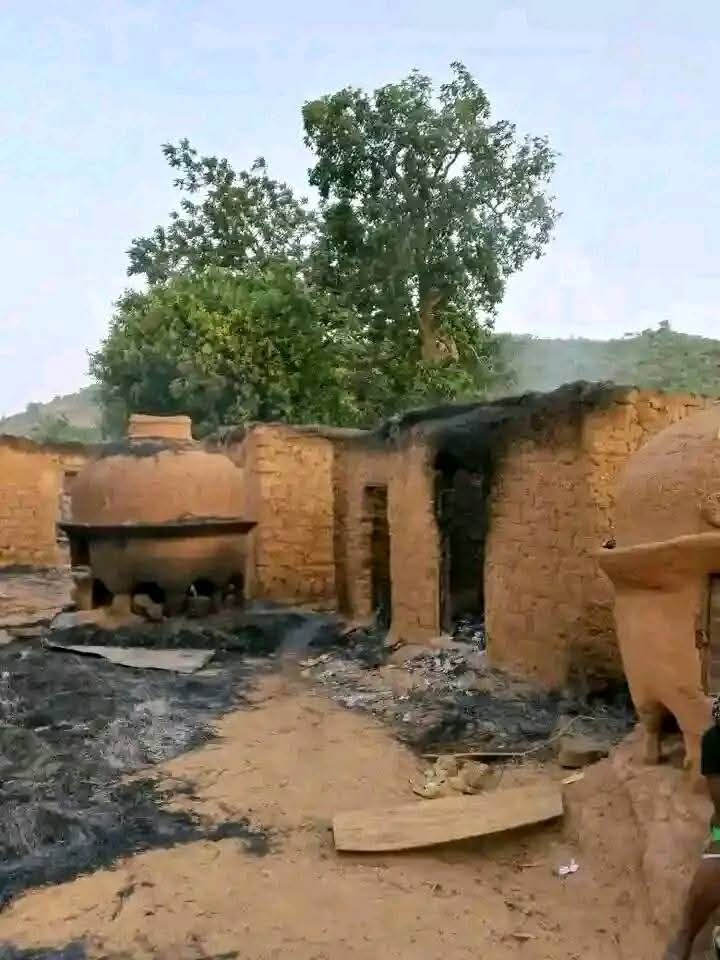407
By Tracy Moses
What should have been a peaceful Sunday night turned into yet another chapter of horror for residents of Zike Kimakpa, a once-thriving community nestled in the Kwall District of Irigwe Chiefdom in Bassa Local Government Area earlier in the week.
Gunmen operating under the cover of darkness, in a coordinated and deliberate attack, killed over 45 persons, leaving dozens others injured. Homes were burnt, families torn apart, and the village now bears the scars of the tragedy.
For the people of Zike Kimakpa, this tragedy is not a standalone incident, but a brutal reminder of the deepening pattern of violence that has gripped Plateau State and especially Bassa LGA for years.
The Irigwe ethnic group, predominantly Christians and largely agrarian, has borne the brunt of these attacks.
Recall that the attacks from July 31 to August 2, 2021, on Jebbu Miango and neighboring villages in the same Bassa LGA, left over 70 people dead. In that instance, 23 villages were reportedly razed within three days.
Just months later, another coordinated attack in Ancha village saw gunmen struck again in the night, killing 10 and injuring many more. Despite widespread condemnation, no significant arrests followed.
More recently, during Christmas week in December 2023, a coordinated massacre in Mangu and Bokkos Local Government Areas left over 190 dead across multiple communities. Survivors called for international attention, decrying the silence of national leadership and the absence of meaningful security reform.
“The nation mourns briefly, and then the world moves on,” said Rev. Luka Adamu, a local clergy member who has buried more victims of violence than he can count. “But we continue to die, over and over again,” he said.
What makes the Zike Kimakpa tragedy even more painful for residents is the sense that it could have been prevented. Days before the attack, villagers reported suspicious gatherings and unusual movements near the community’s borders. One of the residents, also a youth leader in the community, Yohanna Madaki, told Pointblank News, “We saw people we didn’t recognize watching us from the hills. We informed the security post. We even begged for a patrol, but nothing came.
“When the gunmen eventually struck on the night of April 13, 2025, they came with military precision. The people that attacked us were moving from house to house, torching buildings and shooting at anything that moved. It was like they came to erase us.”
Also speaking to Pointblank News, Hassana Yakubu, a witness described a heartbreaking scene: “Mrs. Rifkatu Ishaya, a mother of four, fled with her two youngest children. Her husband and eldest son were gunned down in front of their home. We are in pain, we are helpless, no one to stand for us. Politicians come during campaigns to make promises they won’t keep. After the elections, we are left alone to perish.”
In the aftermath, the Plateau State Government, led by Governor Caleb Mutfwang, condemned the attack. Commissioner for Information and Communication, Hon. Joyce Ramnap, voiced out on a phone call, “This is one too many. The killers of our people must not go free. We will not allow the soul of Plateau to be stolen by violence.”
Speaking randomly to residents, Pointblank News recorded the prevailing mood of frustration and fatigue.
“We are tired of condolences,” said Reuben Izang, a schoolteacher whose niece was among the dead. “Where are the arrests from the Bokkos massacre in December? What about Jebbu Miango in 2021? How long can a people cry for help before they are heard?” he asked.
Beyond the death toll, lies a deeper, long-term impact. With each attack, communities are displaced, farmlands abandoned, and a generation of children traumatized. Zike Kimakpa joins a growing list of ghost villages in Plateau, where rebuilding often feels like inviting more bloodshed.
Mr. Hassan, a police officer in a nearby community, revealed that humanitarian groups and local volunteers are already mobilizing, offering food, blankets, and psychological support. But the needs far outweigh the resources. As smoke still rises from the ruins of homes, the community clings to faith and to each other.
Despite the fear, grief, and anger, a sliver of hope remains, rooted in the resilience of a people who have survived too much to be forgotten.
“This place was built with our hands and sweat,” said Elder Danladi Aboi, a retired teacher. “We will rebuild again. But we need more than prayers. We need justice. And we need the world to see us,” he added.



